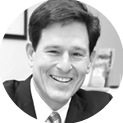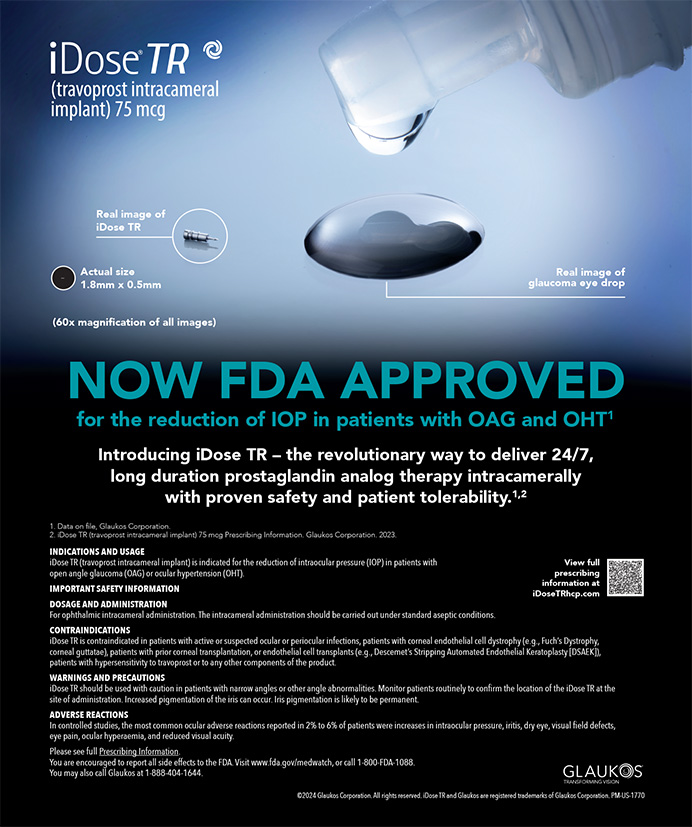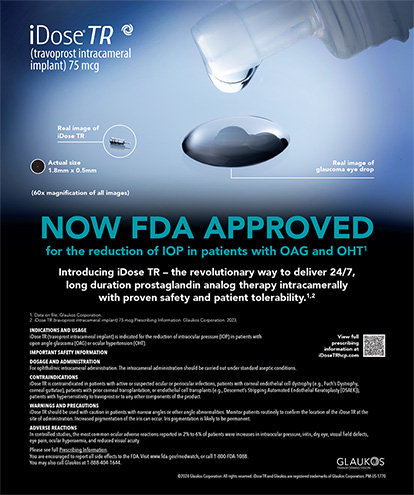
Do you feel burned out by your day-to-day routine? Are you frustrated by an endless avalanche of patients, all vying for your time? Do you wish that you could take more time off work, but it just seems impossible? Perhaps what you need is a new associate. If you have grown a bit weary after a decade or two of patient care, a newly minted ophthalmologist might be just the right prescription for what ails you. Who would be better equipped to take on some of these challenges than a fresh-faced, brand new ophthalmologist?
But don’t get your hopes up. Today’s new ophthalmology residents are dead tired, depressed, and possibly suicidal. According to a study recently published in JAMA Ophthalmology, over two-thirds of the 241 ophthalmology residents who responded to a survey reported that their training programs had faced an issue with depression, burnout, or suicide within the past year.1 About one-quarter reported being personally involved in a case in which fatigue, burnout, or depression adversely affected the medical outcome or their judgment.
In that same study, only 26.7% of residents reported that their training program had a formal resident wellness program that offered services such as nutritional seminars, exercise classes, and one-on-one counseling.
Residency can be a stressful time—although many would argue that ophthalmology residency is somewhat benign when compared with several other specialties. Still, the challenges of absorbing enormous amounts of new information, learning intricate surgical procedures, and caring for sick patients is undeniably difficult. In the hopes of improving patient safety, a series of restrictions were placed upon resident work hours by the Accreditation Council for Graduate Medical Education (ACGME). Starting in 2003, the workweek was formally capped at 80 hours, with shifts capped at a maximum of 24 consecutive hours.2 More recent rules allow shifts of up to 28 hours.3
Despite these protections, some residents have complained that, even though their official hours might be capped at 80 per week, they are still responsible for completing a workload that requires far more hours.4 Further complicating the situation is the fact that it is not clear who is actually responsible for monitoring and enforcing these restrictions. Although the reforms were designed to improve patient safety, a systematic review of 27 studies found no difference in patient mortality before and after implementation of the ACGME work restrictions.5
Additional help may be on the way for our weary residents. The ACGME recently released a set of guidelines that formally requires accredited ophthalmology residencies to provide activities to promote resident well-being, including confidential counseling, behavioral health resources, and overall wellness education.6 These initiatives were all born of good intentions—and perhaps the additional regulatory requirements will succeed where previous ones have failed—but I wonder if we should look elsewhere to alleviate resident dissatisfaction.
A 2016 study found that internal medicine residents spend an average of 5 hours per day on the demoralizing task of filling out required electronic health record (EHR) data fields.7 Unfortunately, things don’t seem to get much better after residency; a recent time-motion study of four ambulatory care specialties found that half of all physician time was spent dealing with EHR and regulatory paperwork.8 Indeed, many physicians seem to be in open revolt against EHR.9-11 Dissatisfaction and burnout among physicians both in and out of training seems higher than it needs to be, and the nonclinical scutwork component of the job seems to be a major culprit. Sadly, I see nothing on the horizon to reverse this trend. n
Steven J. Dell, MD | Chief Medical Editor
1. Tran EM, Scott IU, Clark MA. Resident wellness in US ophthalmic graduate medical education: the resident perspective [Published online May 3, 2018]. JAMA Ophthalmol. doi:10.1001/jamaophthalmol.2018.1383.
2. Philibert I, Friedmann P, Williams WT. New requirements for resident duty hours. JAMA. 2002;288(9):1112-1114.
3. Petersen M. Young doctors can work 28 hours straight under new rules. Los Angeles Times. March 10, 2017. www.latimes.com/business/la-fi-medical-resident-hours-20170310-story.html. Accessed May 15, 2018.
4. Drolet BC, Dangisetty S, Thomas T, Cioffi W. Surgical residents’ perceptions of 2011 Accreditation Council for Graduate Medical Education duty hour regulations. JAMA Surg. 2013;148(5):427-433.
5. Bolster L, Rourke L. The effect of restricting residents' duty hours on patient safety, resident well-being, and resident education: an updated systematic review. J Grad Med Ed. 2015;7(3):349-363.
6. American College of Graduate Medical Education. What We Do. www.acgme.org/What-We-Do/Initiatives/Physician-Well-Being/Influence. Accessed May 15, 2018.
7. Chen L, Guo U, Illipparambil L, et al. Racing against the clock: Internal medicine residents' time spent on electronic health records. J Grad Med Ed. 2016;8(1):39-44.
8. Sinsky C, Colligan L, Li L, et al. Allocation of physician time in ambulatory practice: a time and motion study in 4 specialties. Ann Intern Med. 2016;165:753-760.
9. Friedberg MW, Chen PG, Van Busum KR, et al. Factors affecting physician professional satisfaction and their implications for patient care, health systems, and health policy. Santa Monica, CA: Rand Corporation; 2013.
10. Ofri D. The patients vs. paperwork problem for doctors. New York Times. November 14, 2017. www.nytimes.com/2017/11/14/well/live/the-patients-vs-paperwork-problem-for-doctors.html. Accessed May 15, 2018.
11. Strongwater S. Physicians are facing a crisis. NEJM Catalyst. November 18, 2017. https://catalyst.nejm.org/videos/physicians-facing-crisis-emr-burnout/. Accessed May 15, 2018.




